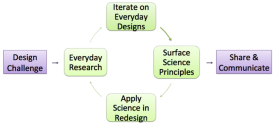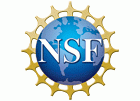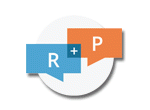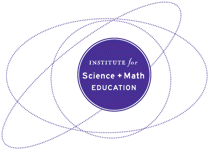How can students’ everyday experiences support science learning through engineering design?
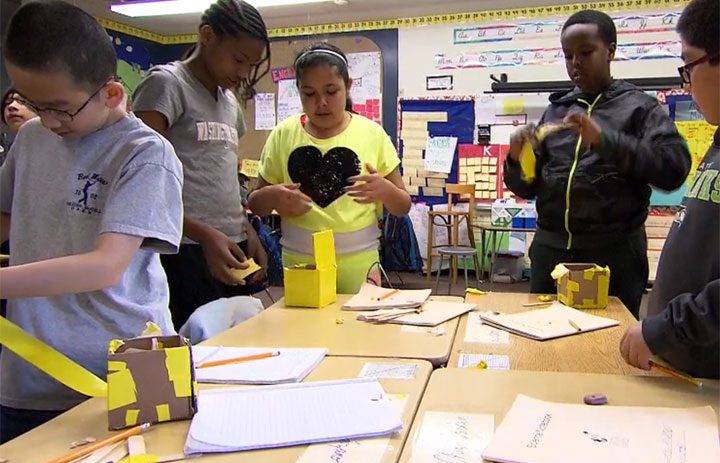
- Teachers should adapt existing curricula to build on students’ everyday knowledge and experiences and set up grading structures that support iterative cycles of design, including learning from productive failure.
- District Staff & PD Providers should support teachers to adapt existing curricula and learn instructional techniques to support culturally relevant instruction.
- School Leaders should learn how to recognize collaborative, creative, and iterative design work in the classroom.
What Is The Issue?
Engineering can be a meaningful way to engage students’ wide range of prior experiences in STEM, helping open the field to be more culturally relevant and meaningful to young learners. It can give students opportunities to deepen their science knowledge by engaging in problem-solving around locally-relevant issues. However, engineering kits and curricula rarely incorporate students’ everyday knowledge, expertise, and practices. Small adaptations to curricula can help students use their everyday experiences to learn about science topics through engineering design.
Authors:
VERONICA MCGOWAN, PHILIP BELL & MARCIA VENTURA - NOVEMBER 2016
Reflection Questions
How does this “everyday expertise” approach to engineering instruction fit with your current approach?
How do differing views on the enterprise of engineering impact instructional designs for learners? What types of knowledge get privileged in these learning spaces?
Things To Consider
- Many curricula frame engineering as an applied science. In this approach, lessons place direct instruction of science content before its application in an engineering design task. However, science learning can also emerge from the engineering design process without direct instruction.
- In this latter model of instruction, students draw on prior experiences and observations, such as building with LEGOS or viewing real-world designs in their communities, to solve novel engineering problems in the science classroom.
- In this model, students are encouraged to further investigate their observations and experiences. For example, many students already know that triangles add support to structures, but getting triangles to successfully work in their designs might require further research on trusses, force, and angles.
Attending to Equity
- All students have experience using knowledge to solve real-world engineering problems through everyday practices such as gaming, play, and working with family. Consider engaging students in reflection, self-documentation, and interactions with local experts.
- The everyday expertise approach is ideal for young learners who are just starting to develop their science content knowledge. It opens up the “research” aspects of engineering design to a broader, more personally relevant, and accessible range of related information.
Recommended Actions You Can Take
As highlighted in the diagram below, the following is a model for adapting engineering lessons to engage students in science learning inspired by their everyday objects and experiences:
- Introduce the design challenge. Teacher introduces the engineering design project and outlines expectations, criteria, and constraints. The design challenge could be tied to an issue of local relevance, such as proposing where to build a new housing development, thereby making the challenge more meaningful to students.
- Conduct research into everyday solutions. Students reflect on ways that everyday objects and experiences have addressed this design challenge. Classroom and at-home discussions, individual reflection, self-documentation, and Internet searches can support this step.
- Iterate on designs that draw upon everyday objects/solutions—or everyday designs. Students design, test, and optimize prototypes of their everyday design solutions.
- Connect to science principles and apply science in redesigns. Students further investigate and incorporate science-based solutions and incorporate them to optimize their designs. The teacher facilitates class discussions to help students bridge the everyday design solutions to related science principles. Systems thinking activities can help students synthesize diverse types of knowledge.
- Share and communicate final design choices with the class. This might take the form of a final design test, gallery walk, or presentation.
ALSO SEE STEM TEACHING TOOLS
STEM Teaching Tools content copyright 2014-22 UW Institute for Science + Math Education. All rights reserved.
This site is primarily funded by the National Science Foundation (NSF) through Award #1920249 (previously through Awards #1238253 and #1854059). Opinions expressed are not those of any funding agency.
Work is licensed under a Creative Commons Attribution-ShareAlike 4.0 Unported License. Others may adapt with attribution. Funded by the National Science Foundation (NSF). Opinions expressed are not those of any funding agency.


 Email Feedback
Email Feedback
